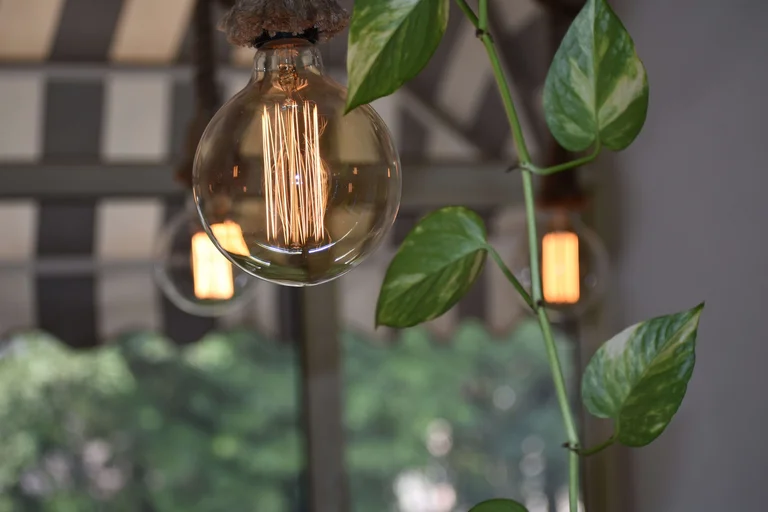With climate change hitting headlines around the world, it is becoming a growing concern. Doing what we can to combat the effects of climate change is key to ensuring a brighter future for all. This includes event planning.
Large scale events can have a big impact on the environment, and even lots of little events add up! Organisations have a corporate responsibility to limit their impact on the environment, society and the economy.
Find out how to organise a sustainable event by making small, manageable changes.
What is a Sustainable Event?
Before you can organise a sustainable event, you need to know what one is.
A sustainable event is one that considers the environment and works to combat any negative impacts that would otherwise be seen. Sustainable events adopt eco-friendly practices such as recycling and saving water, incorporating them in order to reduce the event's carbon footprint.
Event organisers may also choose to participate in carbon-credit schemes. This allows organisations to invest in environmental projects to offset the carbon produced, resulting in a carbon-neutral event.
As is the nature of sustainability, sustainable events should also have a positive social and economical impact on the local community in which it is held.
Explore our top 10 ways to make your event more sustainable.
1. Determine the Environmental Impact of Your Event(s)
To make your event more sustainable, you must first consider the impact it would have. Think about which areas of your event are the least eco-friendly.
- Will transportation be an issue?
- Will you need to use large amounts of plastic or paper?
- Will food be served?
Once you have identified these areas, you know what to focus on in order to improve overall sustainability.
The green credentials of your event should be considered from inception, not just as an afterthought. Not only is making your event more sustainable good for the environment, but it also shows your organisation's commitment to going green!
2. Choose an Eco Friendly Venue and Suppliers
Choosing a venue is one of the most important choices you will make when planning an event. If you want to make your event more sustainable, select a venue that reflects your sustainability goals.
Try to choose a venue that:
- Has recycling stations readily available, or has a good in-house recycling policy
- Uses water efficient-appliances and fixtures, and has a water-saving policy in place
- Has a smart energy policy that looks to control wastage there
- Uses smart temperature controls
- Encourages reduced plastic
- Has the flexibility to incorporate your sustainability goals into your event
All of our event venues including Woodland Grange (Leamington Spa), Broadway House (London) and Engineer’s House (Bristol) take a sustainable approach.
If you are planning an event, the likelihood is you will need to buy in a number of different items, from food and drinks to decorations. Research your suppliers and try to buy from those who operate in an as environmentally friendly a way as possible. You should also try to buy from local suppliers to reduce transportation emissions.
3. Go Plastic Free
By now, we all know the damage that plastic can do. Not only does it release toxic emissions during creation but it is made from non-renewable resources and can end up in our oceans if not recycled properly.
Why not try a completely plastic free event? Replace plastic cups with reusable glasses and use metal or wooden cutlery and reusable plates for meals. If your event has independent vendors, only use those who agree to use non-plastic alternatives for packaging.
You should also think about your decorations. Say no to helium balloons made of mylar. They are non-biodegradable and can travel miles, ending up in our oceans.

4. Go Paper Free
Whilst paper is often used in place of plastic, why not ditch both?
Paper is a more environmentally friendly alternative to plastic however, trees still need to be cut down in order to create paper. If you must use paper at your event, make sure you have paper recycling bins dotted around the venue.
To make your event more sustainable use digital tickets and avoid printing paper handouts. Instead you could create an app or microsite that attendees can access from their phones to view information. They are also a great way to market your event in the run up!
5. Serve Organic, Locally Sourced Produce
At most events, refreshments will be served. Choosing organic, locally sourced produce is a great way to make your event more sustainable...and it will taste great too! Make Venues has been focused on providing locally-sourced produce for some years and the quality speaks for itself.
Buying from local sellers helps you to have a positive social and economic impact on the surrounding area, and also helps to reduce emissions by negating the need for produce to be transported long distances.
You could also think about serving a vegan or meat-free menu. At Make Venues the team provide meat-free options as standard, in fact they’re so good they often sit front and centre of the buffet options. Choosing to go meat free for your event is always the more sustainable option.
If you have food leftovers, don’t throw them away. Instead, you should donate them to a local food shelter.
6. Encourage Eco Friendly Transportation To and From Your Event
It is not only your actions that affect the eco-credentials of your event. If you want to organise a sustainable event, you also need to think about your attendees.
You can organise an eco-friendly event, but if everybody drives long distances to get there, the carbon footprint of your event will sky rocket. You should try to choose a venue that is local to most of your attendees. A venue within walking distance of a train station is ideal as you can encourage people to take the train rather than driving.
If your venue can only be reached by car, organise a car share scheme to reduce the number of cars travelling to and from the venue.
You could also organise a hybrid event, allowing people to join virtually to reduce the number of people required to travel.
7. Use Projectors Over Print
For events such as awards ceremonies or presentations, you may want to decorate the stage or room with company or event branding. Your first thought might be to have banners or cardboard set pieces printed, but this can result in unnecessary waste.
You can transform a space using audio visual equipment such as projectors. Project your company logo or event information onto screens. You could also project backgrounds and patterns onto the stage. With video projection, almost any surface can become a display.
8. Opt for LED Lighting Options
LED lights are significantly more environmentally friendly than fluorescent lighting. They consume less power per unit of light emitted, saving energy and reducing carbon emissions. By opting for LED lighting you can help to make your event more sustainable.
LED lighting is also extremely versatile. It can be used to create different moods and feels for your event, without causing excess damage to the environment.

9. Go Outdoors
The most sustainable event venue you could use is the great outdoors! Many of our event venues including Woodland Grange in Leamington Spa, and Engineer’s House in Bristol have outdoor event spaces that can be used for your event.
By hosting your event outdoors, you can take advantage of the natural light, reduce the need for air conditioning or heating and other electrical appliances. This also helps to save money as well as energy...win win!
Find out more about planning an outdoor event.
10. Reduce Water Usage
Wasting water has numerous implications on both the social and biological environment. Less than 1% of the world’s water is freshwater. This means that less than 1% of all the world’s water is available to consume.
If water is wasted then there may be shortages in other areas of the world. This could reduce the amount of water that can be used in the agricultural industry therefore affecting the food we eat.
From an environmental point of view, in order for water to be ready to drink, it must first be extracted, filtered and transported. All processes which use fossil fuels to complete. By reducing water usage at your event, you can help to reduce its impact on the environment.
Rather than handing out plastic water bottles, encourage guests to bring reusable water bottles and have water refilling stations around the venue. This ensures that only water that is needed is used.
You should also think about giving table water a miss. You could ask attendees if they would like a glass of water rather than pouring gallons of water into jugs, only for it to be wasted.

Looking to Organise a Sustainable Event?
To organise a sustainable event, you need to plan meticulously, do your research and find partners that share your sustainability goals.
Our award-winning event spaces in Leamington Spa, Bristol and London are managed with sustainability in mind, with flexible options to accommodate your environmental needs.
Contact our team today on 0808 168 5876, or get in touch via our enquiry form for more information on organising a sustainable event.
